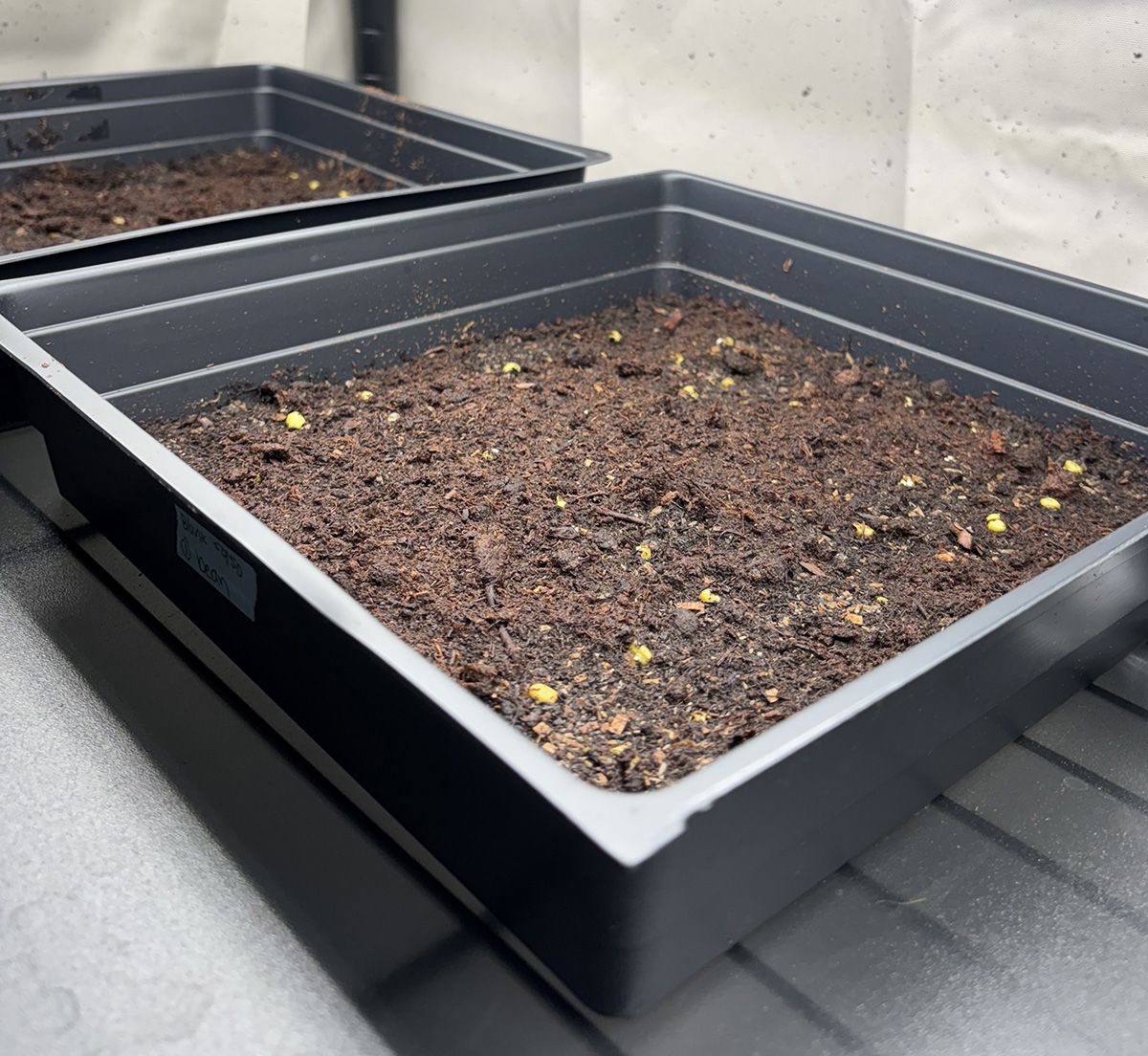Summary
The OECD 208 biodegradation test assesses the effects on seedling emergence and their early growth following exposure to the test substance in or on the soil. This test is also commonly used as part of the ASTM D6400 test to evaluate the effects of composting products of plastic materials on seedlings.
OECD 208 Testing Method
Terrestrial plant seeds are placed in soil that has been treated with the test substance. Materials that can be tested with this method are general chemicals, biocides, crop protection products, etc. If the test substance is water soluble, it will be dissolved in water and then mixed with the soil. However, if the substance has low water solubility, it will be dissolved in a suitable volatile solvent, such as acetone or ethanol, then added to sand and evaporated. The sand is then added to the soil. Finally, if the substance is insoluble in water, the chemical is mixed with the dry soil.
Common plant species used in this test include carrots, sunflowers, lettuce, cucumber, soybean, onion, rice, wheat, corn, and other common plants. These seeds are put into natural soil, such as sandy loam, loamy sand, sandy clay loam, or commercial potting soil that contains up to 1.5% organic carbon. This test takes place in pots with a 15cm diameter, with 3 replicates for blank control and 3 replicates for the test substance.
The seedling emergence, biomass measurements, shoot height, and visible detrimental effects on different parts of the plant are what are measured at the end of this test. There are a few criteria for test validity, including:
- Seedling emergence of the blank of at least 70%
- Seedlings of the blank control do not exhibit visible phototoxic effects
- The mean survival of the emerged control seedlings is at least 90% for the duration of the study
This test takes place in very specific testing conditions:
- Temperature: 22ºC ± 10ºC
- Humidity: 70% ± 25%
- Minimum 16 hours of light with an intensity of 350 ± 50 µE/m2/s at a wavelength of 400 to 700 nm
- Duration: 14-21 days
OECD 208 As a Part of ASTM D6400
When OECD 208 is used as part of the ASTM D6400 process, the sample compost and blank compost are mixed with the substrate at a ratio of 25% to 50%. The seeds of two different plant species are then planted in these mixtures. The germination numbers and the plant biomass of the sample compost and the blank compost are compared at all mixing rates and are calculated as a percentage of the corresponding values obtained with the blank compost.
Interested in OECD 208? Contact Our Team Today
When you are looking to quickly, efficiently, and accurately test your products for biodegradability and ecotoxicity, Aropha is here to help. We want to make sure your products are properly tested in a tight turnaround time so you can get your products to market as soon as possible. We combine our digital twin simulation platform with our biodegradability and ecotoxicity testing to streamline your development, allowing you to get your products to market faster than using internal labs or other third-party testing laboratories.
In addition to OECD 208, we offer a wide range of biodegradability testing for countless products and industries. So, even if you need additional testing, our team has you covered.
Pricing
$1599/sample for High-Throughput Screening$2599/sample for Biodegradability Certification

